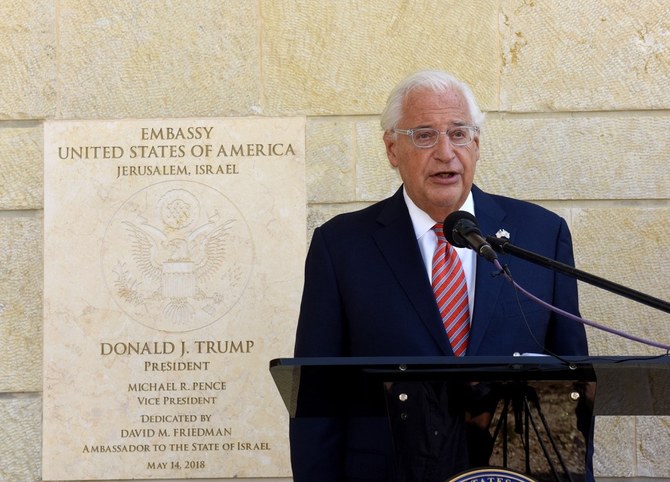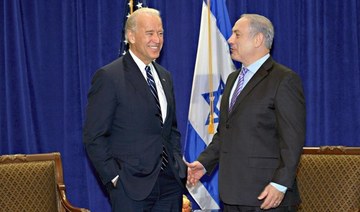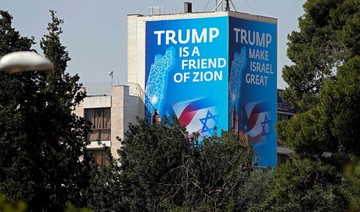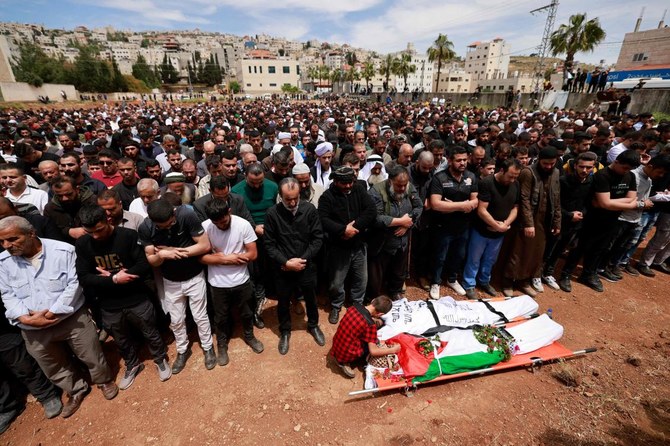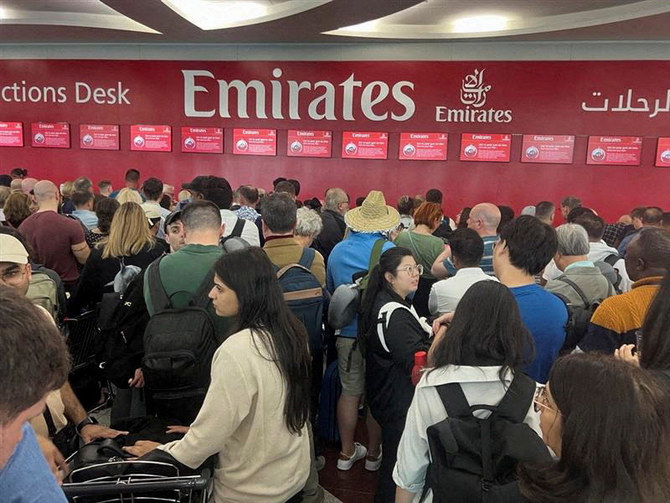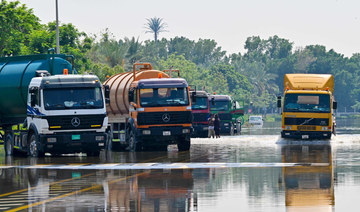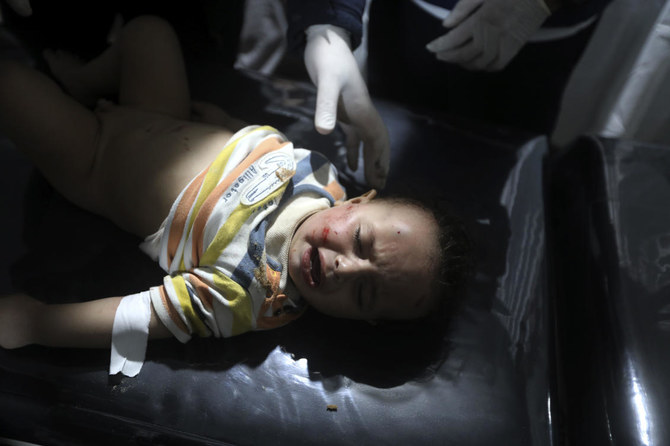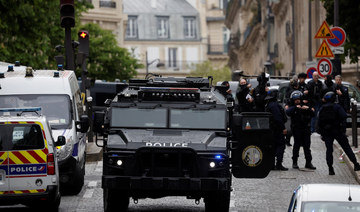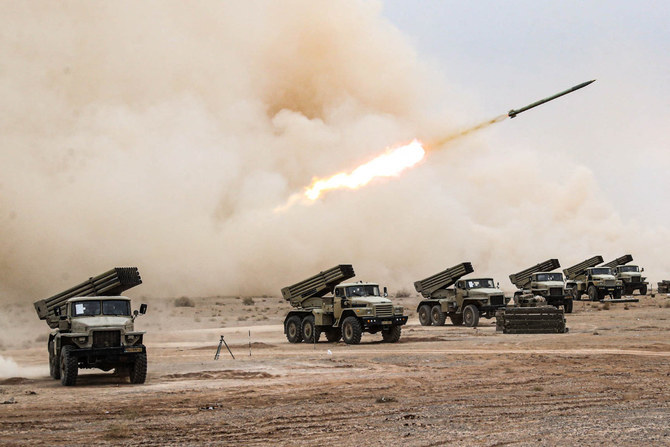RAMALLAH: Palestinians have expressed anger at the decision by Israeli and US authorities to build a permanent US Embassy complex in Jerusalem on land they say was illegally taken from them.
The project will comprise the mission building, offices, staff housing, parking lots and security buildings.
The US and Israel submitted a plan in February 2021 to build the complex on land Israel seized from Palestinians under its 1950 Absentee Property Law. Descendants of the original landowners, including US citizens and East Jerusalem Palestinians, are demanding the cancellation of the development.
The Jerusalem Local Planning and Building Committee published plans for the construction of a permanent mission after its predecessor was moved to a temporary site in Jerusalem from Tel Aviv in 2018.
The site chosen was the abandoned Allenby military base on the outskirts of Talpiot, which was used by the Israeli army until the 1990s. Although most of the site is in West Jerusalem, some of it is classified as “forbidden land” because it sits between the eastern and western parts of the city.
The Israeli municipality of Jerusalem has not given a completion date for the project but Deputy Mayor Flor Hassan Nahum said the publication of the plans came after four years of hard work with the US mission.
Israeli sources said on Wednesday that the public would have 60 days to raise any objections to the plan before any development work began.
Ali Qleibo, a 70-year retired university professor from Jerusalem who owns 20 dunums (two hectares) of the land to be developed, told Arab News that it had been in his family for 350 years.
“The Israelis do not care who owns it. All they care for is pleasing the Israelis and having the embassy in Jerusalem,” he said.
“It’s extremely vexing, annoying and frustrating to be so helpless, knowing that the Israelis and Americans can decide the fate of my social history, my prosperity and my identity against all international laws that recognize Jerusalem as an occupied city.
“This land is an Islamic endowment, and I am benefiting from it. But the Israeli authorities seized it under the Absentee Property Law.”
Qleibo said he had tried several times to access his land but had been prevented from doing so by the Israeli authorities.
The Legal Center for Arab Minority Rights in Israel (Adalah) said in a statement in July that after looking at archived records it could “definitively” confirm that the land slated for development was owned by Palestinians.
The US Embassy in Israel has not commented on those claims.
Suhad Bishara, a legal adviser at Adalah, told Arab News that as the land had been illegally confiscated by Israel, the US should not use it for its embassy complex, adding that her organization would write to the US State Department next week in an attempt to have the plans overturned.
Adalah was also considering submitting an objection to the Israeli authorities, she said.
Former US President Donald Trump recognized Jerusalem as Israel’s capital in 2017 before moving the embassy to the city the following year. Most countries have refused to move their embassies to Jerusalem, although Honduras, Guatemala and Kosovo are among those to have bucked that trend.
Israel insists its capital comprises all of Jerusalem, but Palestinians claim East Jerusalem as capital of the Palestinian state.



